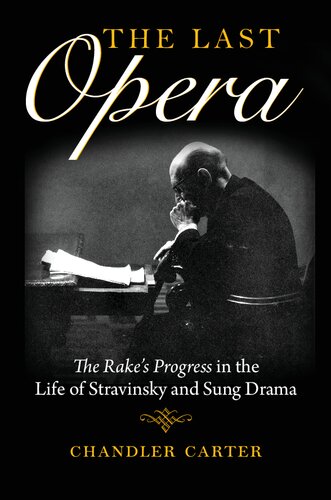

Most ebook files are in PDF format, so you can easily read them using various software such as Foxit Reader or directly on the Google Chrome browser.
Some ebook files are released by publishers in other formats such as .awz, .mobi, .epub, .fb2, etc. You may need to install specific software to read these formats on mobile/PC, such as Calibre.
Please read the tutorial at this link: https://ebookbell.com/faq
We offer FREE conversion to the popular formats you request; however, this may take some time. Therefore, right after payment, please email us, and we will try to provide the service as quickly as possible.
For some exceptional file formats or broken links (if any), please refrain from opening any disputes. Instead, email us first, and we will try to assist within a maximum of 6 hours.
EbookBell Team

5.0
58 reviewsFrom the fall of 1947 through the summer of 1951 composer Igor Stravinsky and poet W. H. Auden collaborated on the opera The Rake’s Progress. At the time, their self-consciously conventional work seemed to appeal only to conservative audiences. Few perceived that Stravinsky and Auden were confronting the central crisis of the Modern age, for their story of a hapless eighteenth-century Everyman dramatizes the very limits of human will, a theme Auden insists underlies all opera. In The Last Opera, Chandler Carter weaves together three interlocking stories. The central and most detailed story explores the libretto and music of The Rake’s Progress. The second positions the opera as a focal point in Stravinsky's artistic journey and those who helped him realize it―his librettists, Auden and Chester Kallman; his protégé Robert Craft; and his compatriot, fellow composer, and close friend Nicolas Nabokov. By exploring the ominous cultural landscape in which these fascinating individuals lived and worked, the book captures a pivotal twenty-five-year span (from approximately 1945 to 1970) during which modernists like Stravinsky and Auden confronted a tectonic disruption to their artistic worldview. Ultimately, Carter reveals how these stories fit into a larger third narrative, the 400-year history of opera. This richly and lovingly contextualized study of The Rake’s Progress sheds new light on why, despite the hundreds of musical dramas and theater pieces that have been written since its premier in 1951, this work is still considered the "the last opera."